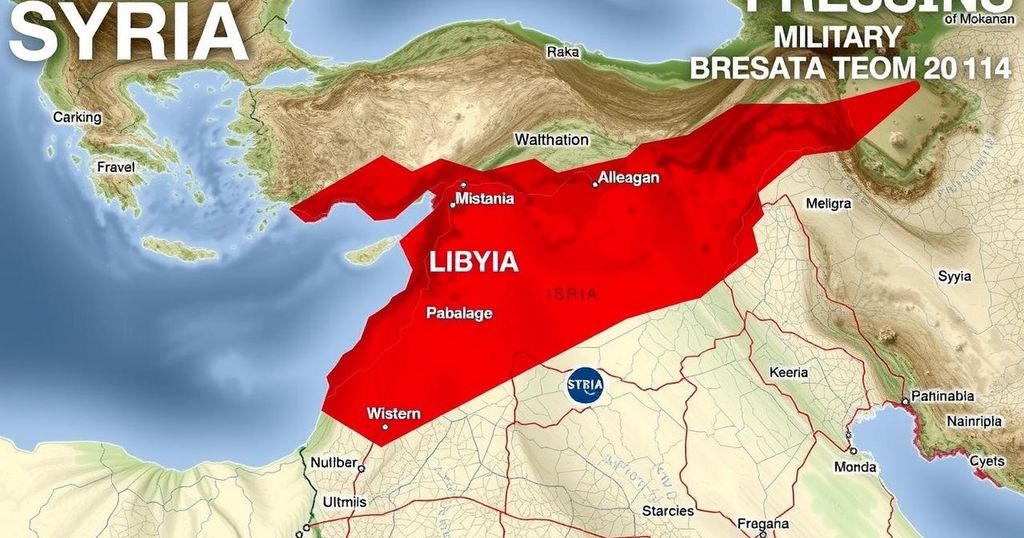World news
AFRICA, AFRICA CORPS, AL, AL - ASSAD, ASIA, BASHA, BASHAR AL - ASSAD, EUROPE/ASIA, GEOPOLITICS, HAYAT TAHRIR AL - SHAM, INTERNATIONAL CRISIS GROUP, LIBYA, MILITARY, NATO, OLEG IGNATOV, RUSSIA, RUSSIAN INVASION OF UKRAINE, SYRIA, TRIPOLI, US PRESIDENTIAL RACE, WAGNER GROUP, WAR
Michael Grant
0 Comments
Russia’s Strategic Shifts: The Potential Impact of Military Redeployment to Libya
Analysts are examining the implications of a potential Russian military redeployment from Syria to Libya. Despite Russia’s deteriorating hold on Syria, the Kremlin seeks to retain its strategic influence in the Mediterranean through Libya. With internal power struggles in Libya, any increased Russian presence could grant significant leverage to Khalifa Haftar, thereby altering the political landscape and complicating Western diplomatic efforts.
As analysts speculate the potential for Russia’s military redeployment from Syria to Libya, the implications for all parties involved become increasingly significant. The Kremlin is intent on maintaining its strategic presence in the Mediterranean and Africa, cultivated over the past decade. Although Russia’s hold on Syria appears to diminish, the importance of sustained influence in Libya has grown, as it represents a critical alternative for military base operation and regional power projection.
Moreover, the existing instability in Libya poses considerable challenges. There are currently two competing governments, neither of which has succeeded in establishing legitimacy over the other. With Khalifa Haftar’s Eastern government in a power struggle with the internationally recognized Government of National Accord, any Russian establishment of military bases could tip the scale in Haftar’s favor, granting him undue influence in negotiations aimed at stabilizing Libya’s internal politics.
Russia’s military presence, particularly through the Africa Corps, reflects a broader objective to expand its influence in Africa and counter Western power. An enhanced presence in Libya could act as a lever against NATO, especially regarding Europe’s migration routes and energy supplies. However, such maneuvers are not without risks, as local dynamics remain complex and fraught with volatility.
Thus, while Turkey and China grow in influence on the continent, maintaining a foothold in Libya could allow Russia not only to protect its interests but also to exert pressure on Europe if tensions escalate.
The situation in Syria has been pivotal for Russian foreign policy, particularly in affirming its military reach across the Mediterranean region. Strategic airfields and naval bases established in Syria have served as crucial elements intended to project Russian power. However, the evolving political landscape, particularly with the rise of Hayat Tahrir al-Sham, raises questions regarding Russia’s future holdings in the region. Libya, already a site of Russian activity, stands out as a practical alternative for maintaining access to the Mediterranean, especially in the face of potential setbacks in Syria.
In conclusion, the potential relocation of Russian military assets to Libya following developments in Syria highlights the intricate geopolitical chess game in which Moscow is engaged. As Russia seeks to sustain its influence amidst dwindling options, the internal chaos of Libya presents both opportunities and risks. The balance of power in Libya remains delicate, and any significant increase in Russian involvement could exacerbate tensions, not only within Libya but also across Europe, calling into question the strategic calculations of all players.
Original Source: www.aljazeera.com




Post Comment